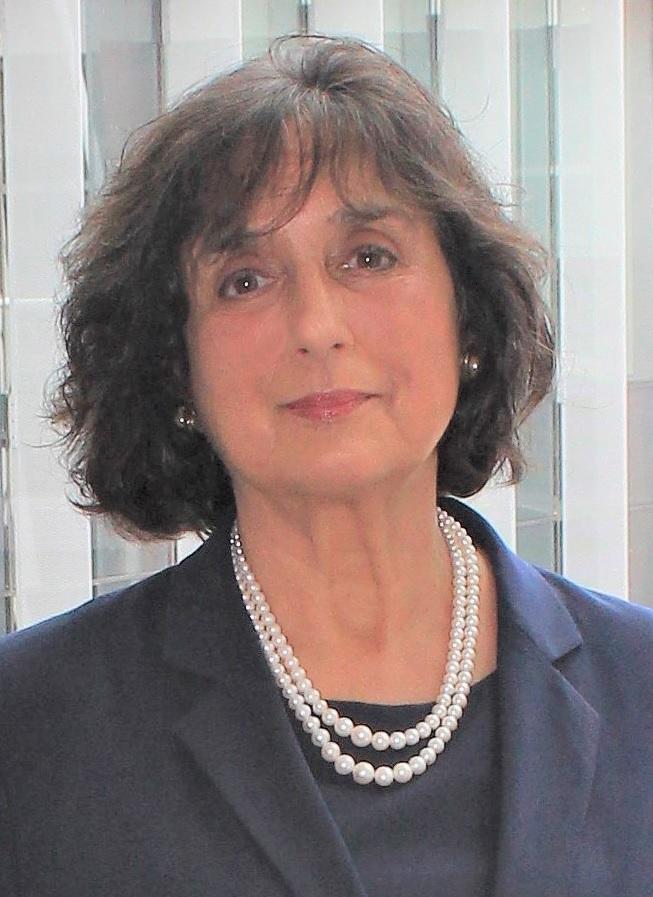Roberta Diaz Brinton, Ph.D., director of the Center for Innovation in Brain Science at the University of Arizona Health Sciences, received $5.9 million from the National Institute on Aging to develop precision medicine interventions

Credit: University of Arizona Health Sciences
TUCSON, Ariz. – Alzheimer’s disease hits women harder than men. Nearly two-thirds of Americans who have Alzheimer’s are women, and more than 60 percent of Alzheimer’s and dementia caregivers are women, according to the Alzheimer’s Association.
Worldwide, 47 million people are living with Alzheimer’s and other dementias — including nearly 6 million in the United States — so the number of women affected is staggering.
The neurodegenerative disorder’s most common form, called late-onset Alzheimer’s disease, occurs after age 65.
“We know Alzheimer’s disease can start 10 to 20 years before diagnosis,” said Roberta Diaz Brinton, PhD, a leading expert in Alzheimer’s disease biology and therapeutic development and inaugural director of the Center for Innovation in Brain Science at the University of Arizona Health Sciences.
“Further, we know that there is a sex difference in the prevalence of the disease. Curing the disease requires that we discover the earliest events in the brain in both women and men that lead to emergence of disease symptoms later in life.”
Recently, the National Institute on Aging, part of the National Institutes of Health, awarded Dr. Brinton a five-year, $5.9 million grant to do exactly this.
The goal of the project is to identify the sex-specific mechanisms driving Alzheimer’s disease and to translate the discoveries into novel therapeutics to prevent, delay and potentially reverse its course in women and men. Currently, no treatments exist to stop or reverse Alzheimer’s.
Women with Alzheimer’s exhibit a broader range of dementia-related behaviors and greater cognitive decline than men as the disease progresses. Studies have found evidence that women’s brains are more vulnerable to Alzheimer’s than men’s, but the reasons are unknown. Dr. Brinton’s study aims to define the biochemical pathways that lead to sex differences in the disease.
“Outcomes of our research will generate therapeutic targets for precision medicine interventions for both women and men during the early stage of Alzheimer’s when the potential to prevent, delay and reverse disease progression is greatest,” Dr. Brinton said.
To achieve the goal, Dr. Brinton has assembled a research team with expertise spanning brain imaging, mitochondrial bioenergetics, molecular genetics, sex differences and computational systems biology.
Dr. Brinton will serve as the team’s primary director. Brain imaging will be led by Lisa Mosconi, PhD, associate director of the Alzheimer’s Prevention Clinic and associate professor of neuroscience in neurology at Weill Cornell Medicine. The bioenergetic analyses will be led by Fei Yin, PhD, assistant professor in the Department of Pharmacology at the UA College of Medicine – Tucson and associate director of the UAHS Center for Innovation in Brain Science. Computational systems biology will be led by Rui Chang, PhD, associate professor with the Department of Neurology, UA College of Medicine – Tucson, and associate director of computational systems biology at the Center for Innovation in Brain Science.
“Dr. Brinton’s vision and determination has attracted a multitalented team of researchers who are working together to discover the keys to understanding the role of gender in the development and progression of Alzheimer’s disease,” said UA President Robert C. Robbins, MD. “As the average lifespan continues to increase, improving health, happiness and quality of life is crucial, and the UA’s new strategic plan prioritizes global leadership in precision medicine that could prevent and potentially reverse the course of this deadly disease.”
Drs. Brinton and Chang also serve as co-principal investigators on a collaborative effort to identify metabolic dysfunction in Alzheimer’s in a study with Duke University funded under National Institute on Aging grant No. RF1-AG059093.
###
The study, “Sex Differences in the Molecular Determinants of Alzheimer’s Disease Risk: Prodromal Endophenotype,” is supported by the National Institute on Aging of the National Institutes of Health under award No. R01-AG057931. The content is solely the responsibility of the authors and does not necessarily represent the official views of the National Institutes of Health.
About the University of Arizona Health Sciences
The University of Arizona Health Sciences is the statewide leader in biomedical research and health professions training. The UA Health Sciences includes the UA Colleges of Medicine (Phoenix and Tucson), Nursing, Pharmacy and Mel and Enid Zuckerman College of Public Health, with main campus locations in Tucson and the growing Phoenix Biomedical Campus in downtown Phoenix. From these vantage points, the UA Health Sciences reaches across the state of Arizona and the greater Southwest to provide cutting-edge health education, research, patient care and community outreach services. A major economic engine, the UA Health Sciences employs approximately 4,000 people, has approximately 800 faculty members and garners more than $140 million in research grants and contracts annually. For more information: uahs.arizona.edu
Media Contact
Jean Spinelli
[email protected]
520-626-2531




